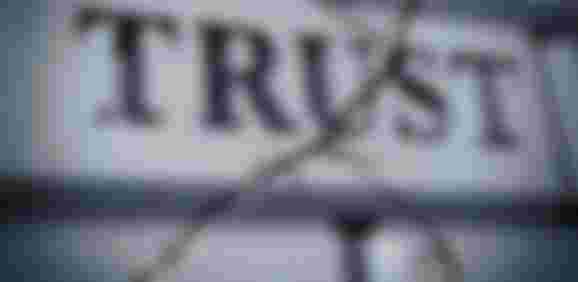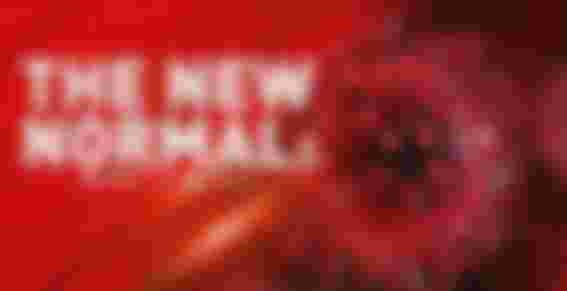
In the fight against stress due to isolation, fear of illness, many have succumbed to anxiety and depression, and for those who have successfully adapted to the new reality, experts have come up with a new name: post-pandemic mentality.
What seemed unthinkable at this time last year, six months after the coronary virus pandemic was declared, has become our daily routine: limited movement, reduced contact with other people, work from home, wearing masks, absence of larger gatherings and cultural events, postponing celebrations, traveling, fearing that we or those close to us will be infected.
Do people manage to adapt to this "new reality" in order to function more or less normally, at what price and what about those who cannot or refuse to fit in. Spotting with an unknown and invisible, yet dangerous enemy, created in people the fear of becoming infected, ending up in quarantine or in an improvised Covid hospital. This affected the appearance of mental disorders, which were much more pronounced if the person had symptoms of Covid 19, even mild, due to the possibility that they become very serious, even fatal. American psychologists warn that the clinical picture of post-traumatic stress disorder (PTSD) cannot be ruled out in the coming period, especially in health workers who worked in Covid hospitals.

Plans "from today to tomorrow" Life in constant uncertainty, in which there is no real planning but everything fits into the "from today to tomorrow" model, depending on the development of the current epidemiological situation, is reminiscent of life in war conditions. Given that a lot of research has been done about that period, can some war experiences help us preserve our strength of spirit, morale, and mental health?
What has not been known in the literature so far is that the corona pandemic involves the simultaneous presence of three traumas: trauma of enormous scale, experience of quarantine trauma (isolation) and trauma due to current stressors in the form of frightening information from visual media. The collective effort in that struggle has been called the key moment of the 21st century or the "world war" of our generation.
There is another parallel here with the war:
Situations like this are an opportunity for people to show the best, but also the worst in themselves. - Losing the usual daily routine and staying at home all day is additional stress, and it has caused many to develop some bad habits that have damaged their mental and somatic health: irregular diet or excessive eating (high-calorie) foods throughout the day, increased drinking alcohol, cessation of physical activity, neglect of medication.
There are also those who used the new situation to socialize with children or a spouse, for joint activities at home, for internet communication with friends, which in a given situation could bring them even closer. The notion of the so-called post-pandemic mentality was introduced for such people. This is a person who in isolation adapted to the situation in the best possible way according to his abilities, but at the same time had realistic expectations of himself, responsibility towards himself, in a completely new situation successfully fought and overcame stressors, took care of his mental and physical health. she felt productive and happy.

Crisis of trust However, many personal, family and social values are shaken in these conditions, and most of all, it seems, trust in the people around us (we see in everyone a potential vector of infection), in state institutions and government. Scientists and doctors claim one thing at a time, another hour, we are facing sensationalism in the media. How do we deal with all this?
In these circumstances, misinformation can lead to unintended consequences, especially when it comes to public trust in scientists or the scientific community. The advice is for people to rely only on authoritative sources, it is recommended to limit the time limit for reading information about Covid 19 on the Internet.

Adapting to the "new normal"
At the beginning of the pandemic, the slogan "we are all in it" eased anxiety and fear, eased panic, and each individual, although scared and confused, felt like "part of the world." But now that has changed. There are countries in which there are virtually no Covids, where people live normally, and those that are still isolated. What feelings does that evoke now? Envy, strengthening of divisions, recklessness, determination to pretend that everything is fine even where there are still dangers?
Life has changed. And while something is slowly returning to the old, a lot will remain for at least some time, until the pandemic disappears forever. Practical recommendations have become part of everyday life, such as wearing masks on public transport, in shops and other enclosed spaces, respecting physical distance, and washing your hands more often and more thoroughly. People have to get used to the "new normal". That is the price they pay for preserving health and life, says our interlocutor.

Social networks, however, helped
In the absence of a vaccine, physical distancing measures are one of the main ways to reduce virus transmission. The prohibition to shake hands, hug and be close to others is unnatural and new for a person. It turned out that communication via social networks still managed to make up for this shortcoming, maybe even made social life richer in terms of more frequent contacts.





Život nam se promenio i moramo živeti sa virusom.Čini mi se da je ovo jedan rižan san iz kojeg se nikako ne budimo.p.s.Ne hvališ se a pljušte dolari !